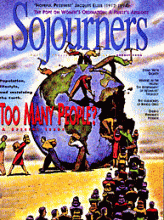For a man who never intended to leave Laos, Joua-Pao Yang looks content on his farm in Woodinville, Washington. At first he seems to fit the stereotype of the hard-working immigrant. He runs a farm and moonlights as a janitor because he wants to put his kids through college.
But Yang and the four Laotian families with whom he farms didn’t come here to pursue the American Dream. They wound up north of Seattle as political refugees. The Hmong and the Mien tribes of Laos and Cambodia helped the losing side during the Vietnam War. When the United States pulled out, the Viet Cong sent these soldiers to re-education camps where many died of starvation.
Fortunately, Joua-Pao Yang was a college student and then a school teacher during the war, so he avoided military service. This background served him well when his family and many other Hmong fled to Thailand. In the refugee camps, Yang taught the school children. His university degree and ability to speak six languages would seem to make him welcome in any country. But, he explained, "Thailand was too crowded. They have 40 million people. They don’t accept refugees."
In 1980, his family found permanent refuge in Seattle. Within months, he started a farm with four other Hmong and Mien families. Leasing land from the county, they grow Asian vegetables for restaurants, supermarkets, and Asian specialty stores. Each farm is a for-profit venture run by a separate family, yet they share all the work. This isn’t factory farming; they plow with tractors, but they plant and harvest mostly by hand.
Read the Full Article
